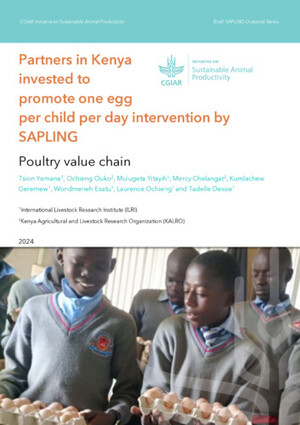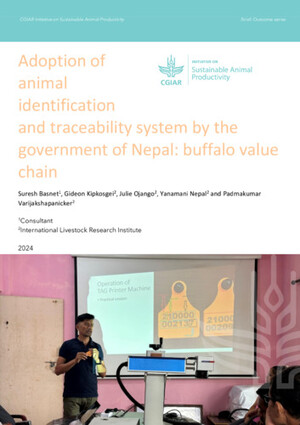
Gender roles and food safety in 20 informal livestock and fish value chains
Abstract
Food-borne disease remains a major public health challenge in Africa and Asia. Most of the foods that carry the highest pathogen risk are produced by smallholder farmers, marketed through the informal sector, and sold in wet markets. Given the significant role of informal markets in African and Asian food systems, attention is invested in understanding (1) how the people that participate in informal markets are exposed to risk, and (2) how they manage risk. We conduct a participatory risk analysis with a gender lens in 20 livestock and fish value chains to study whether gender-based differences influence risk of food-borne disease. We find that socially constructed gender roles are more important determinants of health risk than biological differences between men and women. Variations in risk exposure between men and women are mainly due to gender-based differences in occupational exposure, and secondarily to differences in consumption patterns. Women are important but under-recognized risk managers in the realms of food production, processing, selling, preparation, and consumption. Understanding the influence of gender on risk exposure and management is essential for improving food safety in informal markets.
Citation
Grace, D., Roesel, K., Kang’ethe, E., Bonfoh, B. and Theis, S. 2015. Gender roles and food safety in 20 informal livestock and fish value chains. IFPRI Discussion Paper 1489. Washington, DC: International Food Policy Research Institute.









